Kendrick Farris
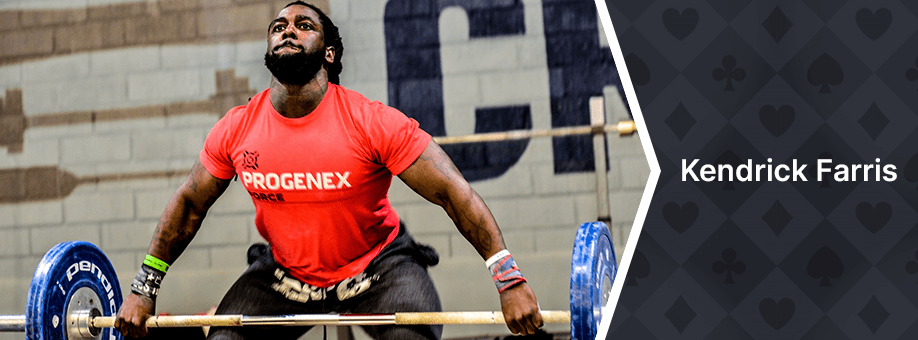
Stats:
- Sport: Weightlifting
- Born: July 2, 1986 (34)
- Net Worth: $1-$5 Million
Breaking Records with a Plant-Based Diet
A major concern some have with a vegan diet is muscle and strength, and our next plant-based athlete proves it's possible to have those qualities in abundance. Weightlifter Kendrick Farris adopted his new diet for religious reasons, telling Men's Fitness that replacing meat with pulses and vegetables is better for the body, reducing stress and inflammation. In 2016 he broke the US record for the snatch, and the clean and jerk.
Meagan Duhamel
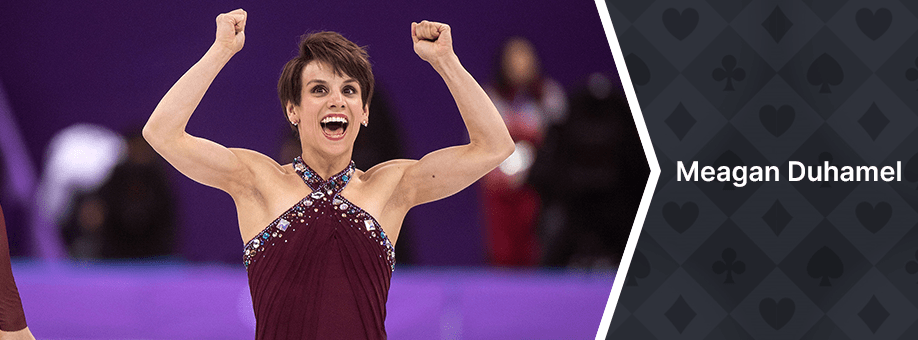
Stats:
- Sport: Skating
- Born: December 8, 1985 (35)
- Net Worth: $1-$5 Million
Meagan Duhamel, the Vegan Athlete on Ice
Small but perfectly formed, next on our best plant-based athlete list is Meagan Duhamel the top Canadian pair skater. Alongside her partner Eric Radford, she's a two-time world champion (2015/16) and in the 2014 Olympics the pair became the first to land a side-by-side triple Lutz jump at any Winter Olympics. The 2018 Winter Olympics was the highlight of her career, culminating in a glorious gold medal. She became vegan in 2008 and cleared her fridge of animal products the day after reading a book on veganism.
Scott Jurek

Stats:
- Sport: Ultramarathon
- Born: October 26, 1973 (47)
- Net Worth: $1-$5 Million
Ultrafitness with a Plant-Based Diet
Scott Jurek is the kind of man who thinks a marathon sounds too easy, and decides to run races like the Spartathlon, a 153 mile race that he's won on three separate occasions. He's also twice triumphed in the Badwater Ultramarathon, which dubs itself the world's toughest foot race, and holds the best US record for longest distance run in 24 hours, at an incredible 165.7 miles, averaging 8 minutes and 42 seconds per mile). They say a vegetarian diet gives you more energy, and given Jurek adopted his in 1997, before becoming vegan in 1999, his exploits certainly support that theory. This plant-based athlete has even written a book. Eat and Run offers practical advice and original recipes, in addition to reminiscing about epic race victories.
Jermain Defoe

Stats:
- Sport: Soccer
- Born: October 7, 1982 (38)
- Net Worth: $20 Million
Healthy Plant-Based Diet = Long Career for Jermain Defoe
Health is important to Jermain Defoe, which is why this top flight footballer adopted a vegan diet in 2017, and why he's also teetotal. Changing the diet led to Defoe's teammates questioning how someone in their 30s could still be playing so well, which raises one of the best advantages for plant-based athletes (and vegans generally). Defoe's played for various top performing UK teams, including Tottenham Hotspur, and is currently on the team at Rangers. In 2011 he became the 20th player to score 100 goals in the English Premier League.
David Haye
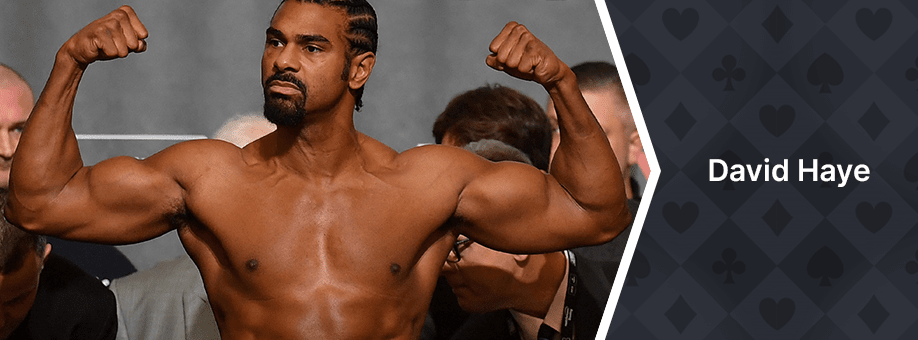
Stats:
- Sport: Boxing
- Born: October 13, 1980 (40)
- Net Worth: $20 Million
David Haye - the Hard-Hitting Top 10-Rated Vegan Athlete
One of the most charismatic boxers of recent times, David Haye competed for more than a decade and a half and won multiple titles in two weight classes, including three out of four cruiserweight major boxing world titles in 2008. That same year he moved up to heavyweight and defeated Nikolai Valuev, despite his opponent having a 99lb weight advantage. Haye spoke to the Sun regarding strength and being a plant-based athlete with a vegan diet, stating: Apes are 20 times stronger than humans and they don't rely on a meat-based diet. They eat plants all day long.
Jack Wilshere
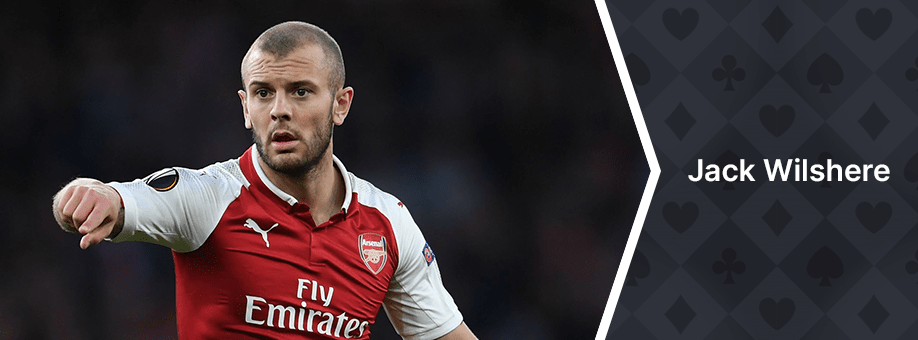
Stats:
- Sport: Soccer
- Born: January 1, 1992 (29)
- Net Worth: $68 Million
Energy to Burn with a Plant-Based Diet
Jack Wilshere is one of our younger entries on the top 10 plant-based athletes list, but no less accomplished for that. During his decade with top flight team Arsenal he racked up more than 100 appearances and scored 7 goals (not bad for a midfielder), plus two FA Cup triumphs. Wilshere's also one of the youngest players in the English national side's history, debuting at the age of 18 years and 222 days. His decision to go vegan led Wilshere to achieve the peak of physical fitness, as he told the Evening Standard.
Venus Williams
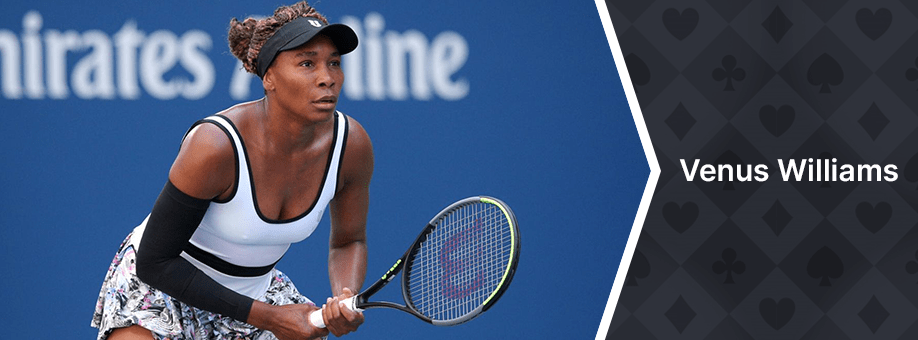
Stats:
- Sport: Tennis
- Born: June 17, 1980 (40)
- Net Worth: $95 Million
Venus Williams - Olympic Gold Medallist, Grand Slim Winner and Top Plant-Based Athlete
Venus Williams has amassed more than $41m in prize money during her career, putting her second only to her sister in the all time rankings. A former world number 1, she's achieved a 76% winning rate, 49 WTA titles, and has won Olympic gold and the Wimbledon and US Open titles on multiple occasions. It was back in 2011 that Williams switched to veganism and became a plant-based athlete, after she was diagnosed with Sjogren's Syndrome (an autoimmune disorder that causes muscle pain and extreme fatigue). She does allow herself to cheat every now and then (dubbing herself a 'chegan'), but the importance of diet for an athlete helps her maintain discipline.
Novak Djokovic
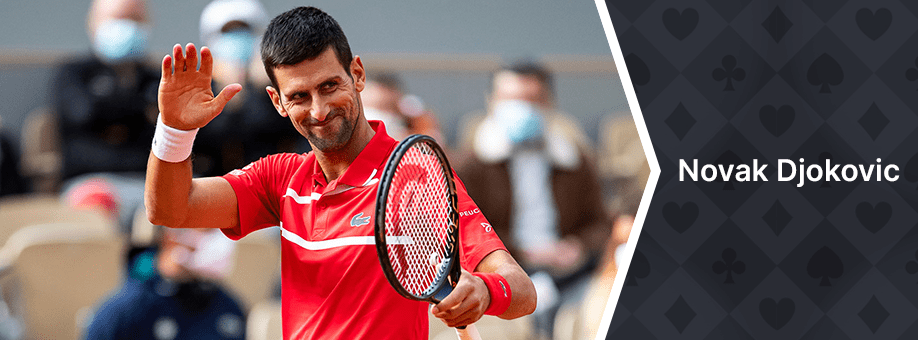
Stats:
- Sport: Tennis
- Born: May 22, 1987 (33)
- Net Worth: $220 Million
Boundless Energy for Top 10-Rated Plant-Based Athlete Djokovic
Novak Djokovic is a top 10 fellow both in terms of plant-based athletes and best tennis players of all time (debate rages as to whether Federer, Nadal, or the aforementioned Serb is the greatest). Right now he's the number one tennis player in the world and has held that rank for more than 300 weeks. His career prize money exceeds $145m, making him the highest earning player ever. And with 17 Grand Slam tournament victories to his name so far, Djokovic might end up eclipsing both Federer and Nadal on the stats sheets. Although he tends not to call himself vegan, Djokovic has eliminated meat and dairy from his daily diet, and likes superfood supplements for the mental clarity they provide.
Tom Brady
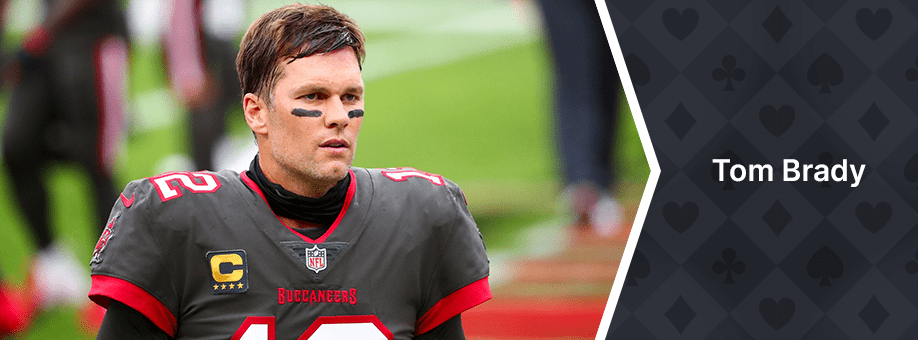
Stats:
- Sport: NFL
- Born: August 3, 1977 (43)
- Net Worth: $250 Million
Tom Brady - the Plant-Fuelled Superbowl Titan
For many sports fans the NFL Superbowl is the pinnacle of entertainment, and in recent years one man more than any other has dominated the event: Tom Brady. He's racked up a mighty 10 appearances and recently won his seventh victory. But that's not all. In addition to immense success in the biggest football games, Brady's also an advert for longevity in the sport, winning his seventh Superbowl at the ripe old age of 43. And he was named the NFL MVP at the age of 40, in 2017. Brady isn't a full vegan, it must be said, but his diet is very green and he's a mostly plant-based athlete, with about four-fifths of his intake being plant-based. And in 2016 he launched his own brand of vegan snacks. Perhaps we shouldn't be surprised by his plant-powered longevity given that Japan has the world's best life expectancy of 83, and the nation eats far more plants than the average Westerner.
Lewis Hamilton
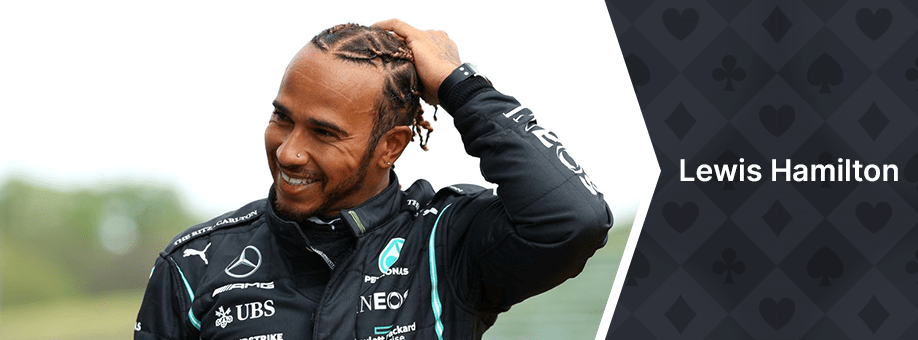
Stats:
- Sport: Formula 1
- Born: January 7, 1985 (36)
- Net Worth: $285 Million
Lewis Hamilton - Top 10 F1 Record-Breaker and Plant-Based Restaurant Owner
Formula 1 has had its share of dominant drivers, from Fangio to the unbridled success of Europe's greatest F1 driver Michael Schumacher, and today there's arguably the best driver of all time on the grid: plant-based athlete Lewis Hamilton. Currently tying Schumacher for most title wins (7), he's likely to win this year to go into the lead, and already holds the records for most race wins (95), podium finishes (165), and pole positions (98). Hamilton's had his fair share of great team mates (world champions Alonso, Button, and Rosberg) but has always been top dog at McLaren and then Mercedes. Hamilton's veganism is rooted in a combination of concern regarding climate change and animal cruelty, and he was named the 2018 PETA 'Person of the Year' for his vegan activism. His vegan restaurant Neat Burger was established in 2019, setting up the first international plant-based burger chain.
Vegan Superfoods that Athletes Swear By
Superfoods that combine a lot of nutritional requirements such as complex carbs, protein, good fats and the like are abundant in a vegan diet, which is great for plant-based athletes. Here are some of the best:
- Legumes (pulses/beans) - These are a great source of protein, with examples including lentils, kidney beans, and black beans.
- Whole Grains - An alternative option for protein that's vegan friendly is this category of superfoods, such as quinoa or wild rice.
- Bananas - Rightly known as a fine source of potassium, bananas also have lots of sodium which is beneficial for muscle recovery.
- Chia Seeds - Perhaps surprisingly, chia seeds come with twice the potassium of bananas, and also have a lot of calcium too.
- Raw Carrots - Raw carrots are a great way to get vitamins A and C.
- Acai Berries - Cut down on lactic acid with acai berries, which are brimming with antioxidant properties.
- Oatmeal - Great for both breakfasts and snacks, oatmeal fills athletes with fiber, as well as various B vitamins, magnesium, and iron.
Animal vs Plant-Based Protein - Pros and Cons
Getting the right amount of protein every day is important, whether you're eating animal products or opting for a vegan diet as a plant-based athlete. There is some debate, however, about whether protein from plants is better than that coming from animals. One advantage that animal-based protein has is that it has a good overall mix of amino acids that the human body needs, whereas proteins from green sources can be low on certain important amino acids (tryptophan, and lysine for example).
In addition, humans can make a certain amount of non-essential amino acids themselves, but there are also other amino acids that must be acquired through eating. Animal sources contain all the amino acids we need. Plant protein sources are considered incomplete as they lack certain essential amino acids. In addition, animal protein sources have more in the way of vitamins (although this can always be made up with other foods or vitamin supplements).
Those focusing on a vegan diet have less cholesterol, less body fat, and, correspondingly, less chance of suffering diabetes or a heart attack. This is especially true when compared to diets that involve processed red meat, which has been shown to have negative effects on those health conditions.
For vegans, the key is to get protein from a broad range of food so that the shortfalls in amino acids from one source can be made up elsewhere. It's also perhaps this varied diet that is one reason why many people thrive when they have a structured diet plan.
Top 10 FAQs
- Why should athletes be vegan? Plant-based athletes have many dietary advantages, and one of the biggest is that a vegan lifestyle reduces blood pressure and cholesterol and reverses coronary plaques, decreasing the risk of heart problems.
- What are the highest calorie plant-based meals? When on the hunt for calories some of the top 10 vegan options include nuts and nut butter, olive oil, dried fruit, sweet potatoes, and avocados.
- What do vegan athletes eat for breakfast? Obviously everyone has their own preferences, but one popular breakfast for plant-based athletes is a smoothie with soy milk, coconut water, kale/spinach, and hemp protein. Oats, dried fruit, rice milk, and banana is an alternative.
- What are the best plant-based sources of protein? Cheese, eggs, and meat are off the menu but don't worry, there are plenty of alternatives for vegans. Among the top 10 best are seitan, tofu, chickpeas, lentils, quinoa, and soy milk.
- Can you build muscle with a vegan diet? As the above plant-based athletes prove, you most certainly can. High protein vegan foods such as those in the answer above, and vegan protein powders, are just the ticket.
- Can a plant-based diet support running? Yes, and it is probably superior to a carnivorous diet. This is because a vegetarian or vegan dietary regime optimizes carbohydrate intake and cuts muscular acidity, which can otherwise limit an athlete's performance.
- Are there any nutritional concerns cutting out animal products? While it's entirely possible to have a healthy non-animal diet, it's important for plant-based athletes shifting their food intake to take account of potential shortfalls, such as protein, vitamin D, and vitamin B12.
- Is iron a potential problem? Quite the reverse. Vegan diets actually tend to have either the same or more iron than diets including meat and other animal products.
- Do plant-based diets lead to less fat? One advantage of eating this healthy way is that the low fat and high fiber diet naturally reduces body fat, and lower body fat helps improve aerobic capacity.
- Are animal products used in sporting equipment? Often no, but sometimes this might be the case (such as with glue in running shoes). Being vegan isn't only about the food you eat, so be sure to check any gear you're buying.
It's quite striking how many contenders who are being considered the greatest of all time in their given sport are plant-based athletes. Tom Brady, Lewis Hamilton, and Novak Djokovic can all lay claim to that from our top 10 list, and with being vegan rising in popularity this trend is likely to continue. If you plan on shifting to such a diet, take care with your research to make sure you're getting all the nutrients you need, and don't be afraid to phase it in rather than going cold turkey (Lewis Hamilton took this approach).









